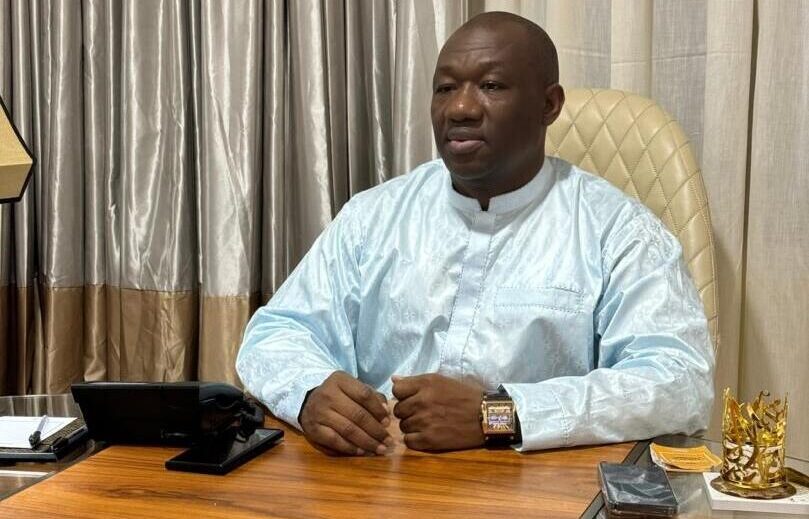By Hassan Osman Kargbo
As a way to empower women and children in the Kono District, the Thomas Saquee Resource Centre was the venue for the launch of the Kono District Multi-Purpose Cooperative Society.
The event, spearheaded by Hon. Alhaji Musa Tarawally, promises to be a pivotal moment in the economic landscape of Kono.
The centrepiece of the launch was a NLe 500,000 donation from Tarawally, earmarked for interest-free loans to Kono women.
While the intent of fostering financial independence is laudable, the scale of the initiative raises questions about the sustainability of the cooperative. Can such a large sum truly empower women, or will it become a fleeting injection of capital without a long-term vision?
“We are at a crossroads,” commented a local businesswoman who requested anonymity. “This is the first major financial assistance we’ve seen, but we need more than just loans. We need training, infrastructure, and access to markets to truly thrive.”
The speeches emphasized the vital role of women in societal and economic progress. Tarawally highlighted the contribution of Kono to Sierra Leone’s economy, particularly in the mining sector, and expressed a desire to see women benefit directly from the region’s prosperity.
However, some observers raised concerns about the timing and context of the initiative. Critics point to a backdrop of increasing political activity in the region, with elections on the horizon. “Is this genuine community support, or is it a political manoeuvre?” questioned another resident. “It’s difficult to ignore the political undertones. We need to ensure this is not a fleeting gesture but a genuine effort to uplift the women of Kono.”
The ceremony also featured calls for unity and an end to tribal divisions, a recurring theme in Sierra Leonean politics.
Tarawally urged the community to prioritize national progress and echoed his commitment to supporting education and religious institutions.
Beyond the financial aspects, the launch included training sessions for women on business management and financial literacy. Yet, questions persist about the long-term support mechanisms, particularly the ability to scale the initiative and provide sustainable business growth.
Key stakeholders, including Paramount Chiefs and representatives from women’s organizations, expressed their support for the cooperative. However, they also stressed the need for responsible management and strategic investment.
The event concluded with the presentation of certificates and a call for continued prayers for Tarawally’s leadership.
While the initiative may provide immediate relief and opportunities for the women of Kono, its long-term impact hinges on transparency, sustainable practices, and a commitment to genuinely empower women, not just provide short-term financial injections.
The success of the cooperative, and its true intent, remains to be seen.













